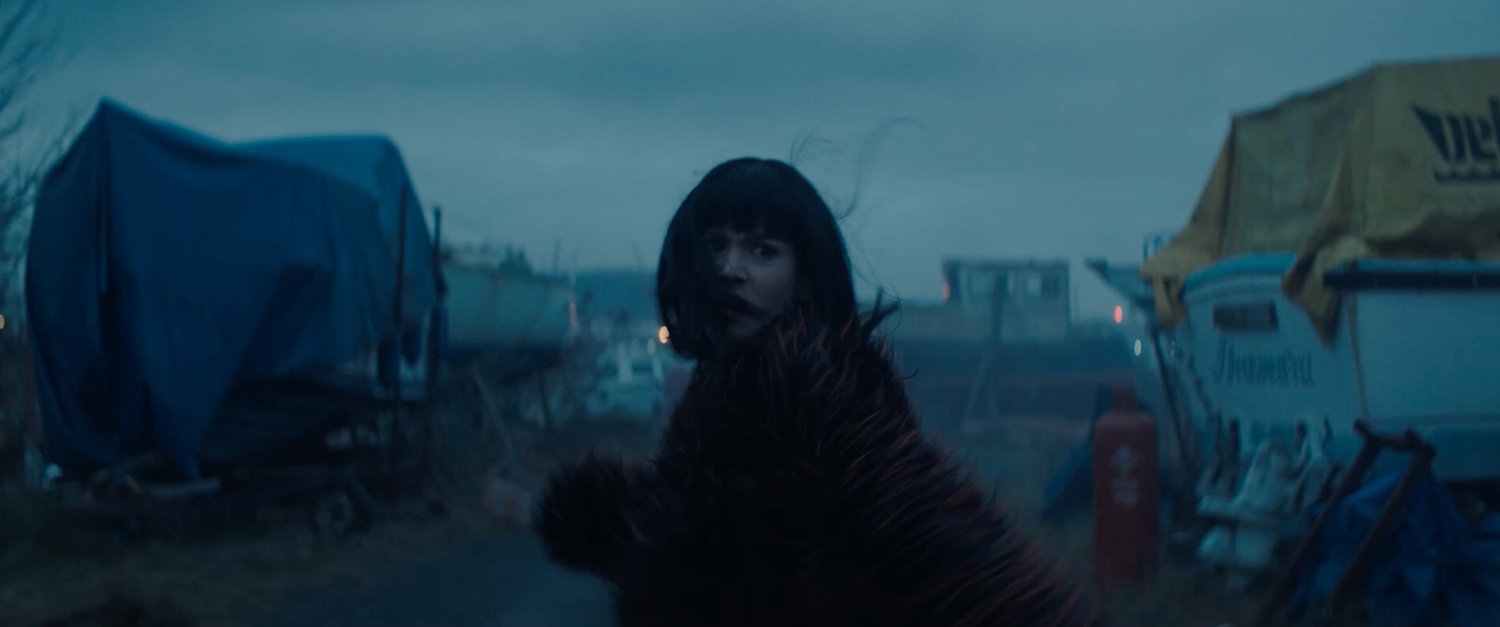ZONE 414

(Guy Pearce, Matilda Lutz and Travis Fimmel star in the sci-fi thriller Zone 414, in theaters and on VOD now. Like what you see here on Hammer to Nail? Why not give just $1.00 per month via Patreon to help keep us going?)
Another week, another derivative lo-fi sci-fi release. So it goes sometimes in the world of indie cinema. On September 3 came The Colony (which I reviewed) and now, seven days later, arrives its soul sister in pastiche, Zone 414. Beyond an affinity for aesthetic and narrative borrowing, the two films bear little resemblance the one to the other, except that both succeed in rising above their unoriginal origins. The Colony did it with slightly greater style, but there’s enough wit and wisdom in director Andrew Baird’s work to lift it above mere theft. Plus, the grittiness of its low budget has a specific appeal, lending it a quality uniquely its own.
Guy Pearce (The Last Vermeer) stars as David Carmichael, a former cop who lost his job (or, rather, was forced to resign, if I understood correctly) because of a misstep that killed his partner. Now, he is in the private sector, and when first we meet him, he calmly unpacks a gun, assembles it, loads, appends a silencer, and shoots a woman in the head. She’s been pleading with him the whole time, begging him not to do it. But, cold as ice, he is unmoved.
A few moments later, however, he peels back her scalp to reveal not a brain but a ball of circuits. It has all been a test, part of an interview by the Veidt Corporation to see if he is fit for a job. It seems that the company founder, Marlon Veidt (Travis Fimmel, Finding Steve McQueen), has lost his daughter, Melissa. Or rather, she has fled, full of hatred at who he is and what he does. He is a builder of androids and owner of a special enclave, the titular “Zone 414,” where anyone with money can pursue any fantasy they want. Blade Runner, meet Westworld.
What complicates Melissa’s disappearance is that she has supposedly taken refuge inside the zone, hiding among “synthetics,” and so into quasi-forbidden area goes the simple working-class stiff. There, he meets Jane (Matilda Anna Ingrid Lutz, Revenge), a “metal girl who wants to be human,” as she calls herself. Blessed (or cursed) with an algorithm that resists behavioral programming, she is free to evolve and develop feelings. Someone (one of Veidt’s more perverse clients, perhaps?) is stalking her, though, and if David helps her with that problem, she will help him find Melissa, whom she labels a “human who wants to be synthetic.”
And so it goes, a metaphysical meditation on the nature of our species. Pearce is his usual fine self, and though Fimmel almost combusts from the hyperactivity of his performance, Lutz does solid work as a highly emotional AI. Simultaneously simple and over-the-top production design creates a variety of spaces that seem both of our world and not. The plot, involving a whole lot of mystery and suspicion, makes little sense, but along the way to its intriguing sort-of conclusion, we find ourselves sucked in, the unsettling pleasures therein just enticing enough to hold our attention. As with Tarkovsky’s zone in his 1979 Stalker, we know we shouldn’t enter, yet can’t helping diving right in.
– Christopher Llewellyn Reed (@ChrisReedFilm)











